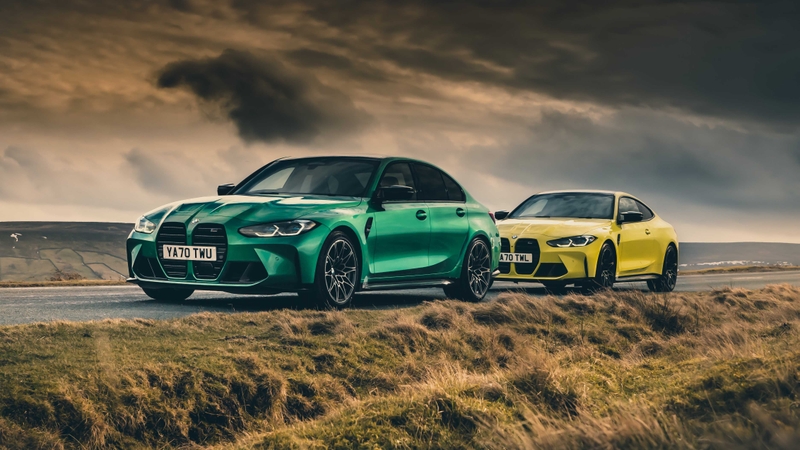
BMW 4 Series engines, driving and performance
Gallery
How does the BMW 4 Series drive?
The BMW 4 Series feels as muscular from behind the wheel as it looks from the outside. Acceleration is easy and brisk. Its steering is intuitive and weighty, and the way it gets down a B-road is responsive and reassuring. Mind you, the steering wheel itself is kind of overstuffed to our dainty hands.
Peel back onto the motorway and the 4 Series shines equally bright. If you want it to be a serene cruiser rather than a sporty fun thing, the 4 Series quickly settles down and delivers. It’s clear that the 4 Series is just as capable on long stretches of motorway as the more straight-laced 3 Series.
Is the BMW 4 Series comfortable?
While there’s a firm edge that comes with sporty handling and tight body control, the 4 Series is generally comfortable. You might notice bumps in the road but they’re quickly over. The 4 Series is excellent at sorting out impacts the first time, and there’s no wallowing sensation over sustained bumpy patches.
As standard, the 4 Series comes with fairly modest 18-inch wheels, and we’d stick with these if ride comfort is important.
There’s a little bit of tyre noise at higher speeds, but turn the radio up a couple of notches and you’ll mostly drown it out.
What’s the best engine to get?
For the majority of buyers, the entry-level 420i is the best pick – something that’s highlighted by the fact that, from 2024, only the 420i and the range-topping M440i are offered. It’s fairly quick yet fairly economical, too. Above that is a rarer 430i with a slug of extra power, but both are 2.0-litre engines and we suspect there’s little difference between them in normal driving.
If you’re going to be racking up the miles, the 420d diesel engine will appeal. It’s brawny and punchy for spur-of-the-moment motorway overtakes, but also capable of up to 60mpg on the right road. Impressive for sure – just make sure you’re doing the odd long journey, as all modern diesels have a DPF which can clog up from lots of short journeys. Petrol examples are more common but you should still find a good selection of diesel 4 Series on the used market.
No proper hybrid engines are offered, although most engines get mild-hybrid tech to assist the engines and improve fuel economy. The onus is clearly more on performance, with two M Performance models – the M440i and the now-discontinued M440d diesel – as well as the BMW M4 Competition.
An automatic gearbox comes with every engine, so it’s a good thing that it’s tuned so well. Gearshifts are smooth and quick, and there’s barely any delay when you put your foot down. Some autos are much more hesitant.
BMW 4 Series performance
We tested the entry-level 420i petrol engine, which boasts 184hp and is good for a 0-62mph time of well under eight seconds. That’s plenty for most driving situations, with good initial pickup and sufficient power at higher speeds. It’s best when you’re driving quickly but not wanting to push the car’s limits – the rare times you ask for flat-out acceleration might leave you wanting a touch more power. The 430i scrubs almost two seconds off the 0-62mph time (5.8 seconds) and offers extra horsepower for slightly better mid-range acceleration.
The pleasingly efficient diesel engines are similarly powerful and have brisk 0-62mph times on paper, with the added bonus of extra low-down power that makes them feel responsive.
But the M440i and, obviously, the M4 Competition are where it’s at if you’re obsessed with power. In the M4’s company, the M440i looks like a bargain – its 4.5-second acceleration effort is only a few tenths short of the M4, but do without the swollen arches, exotic feel and M car status and you’ll save yourself a five-figure sum of money.






















































